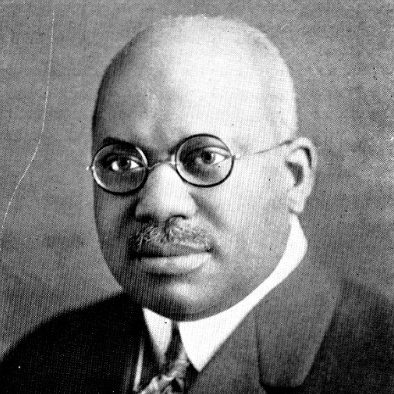Drinking bleach or adding hot peppers to your soup will not protect you from COVID-19: So says the World Health Organization in its lengthy Coronavirus Disease Advice for the Public: Mythbusters.
Unfortunately, during the 1918-19 flu pandemic, we didn't have the WHO to warn us against bogus cures. Fortunately, Chicago had Dr. A. Wilberforce Williams and his weekly health column in the Chicago Defender.
In several columns about "Spanish influenza," as it was commonly known, Williams railed against "fogy and nonsensical methods of prevention." Did you know that rubbing boiled or raw garlic over your chest with a red flannel will not prevent nor cure the flu? He mentions an argument he had with a man who insisted a mixture of seven onions, three ounces of garlic, and 11 ounces of whiskey—"the victim to take a teaspoonful three times a day while wearing a bag of asafetida around the neck close to the skin"—would cure the flu.
Williams did not mince words: "When you [fool with these cures], you are only making fools of yourselves." Other "foolish cures" he debunked included drinking pine tar, taking hydrogen peroxide and rubbing the feet with sulfur.
So who was Dr. A. Wilberforce Williams?
A Louisiana native and graduate of Northwestern University Medical School (1894), Williams focused particularly on the education and improvement of the Black community. He practiced and taught at Provident Hospital in Chicago from 1897 until his death at 75 in 1940.
His weekly health column in the Chicago Defender was the first to appear in a Black newspaper, and the second to appear in an American newspaper (after the Chicago Tribune). Titled "Dr. A. Wilberforce Williams Talks on Preventive Measures, First Aid Remedies, Hygienics and Sanitation," it covered a wide range of topics, including heart problems, baby welfare, "policeman's heel," keeping a clean home and, most of all, tuberculosis and venereal disease.
Despite complaints from other doctors that his column amounted to advertising and concerns from readers who did not consider syphilis and gonorrhea to be appropriate topics for a newspaper, Williams persisted because he saw the danger that misinformation about social diseases posed to the community.
Through his years as the Defender’s health editor and his decades teaching and practicing medicine at Provident Hospital, Williams worked hard to improve the lives of his adopted hometown’s Black community.



Add a comment to: Health Advice During 1918 Flu Pandemic: Chicago’s A. Wilberforce Williams